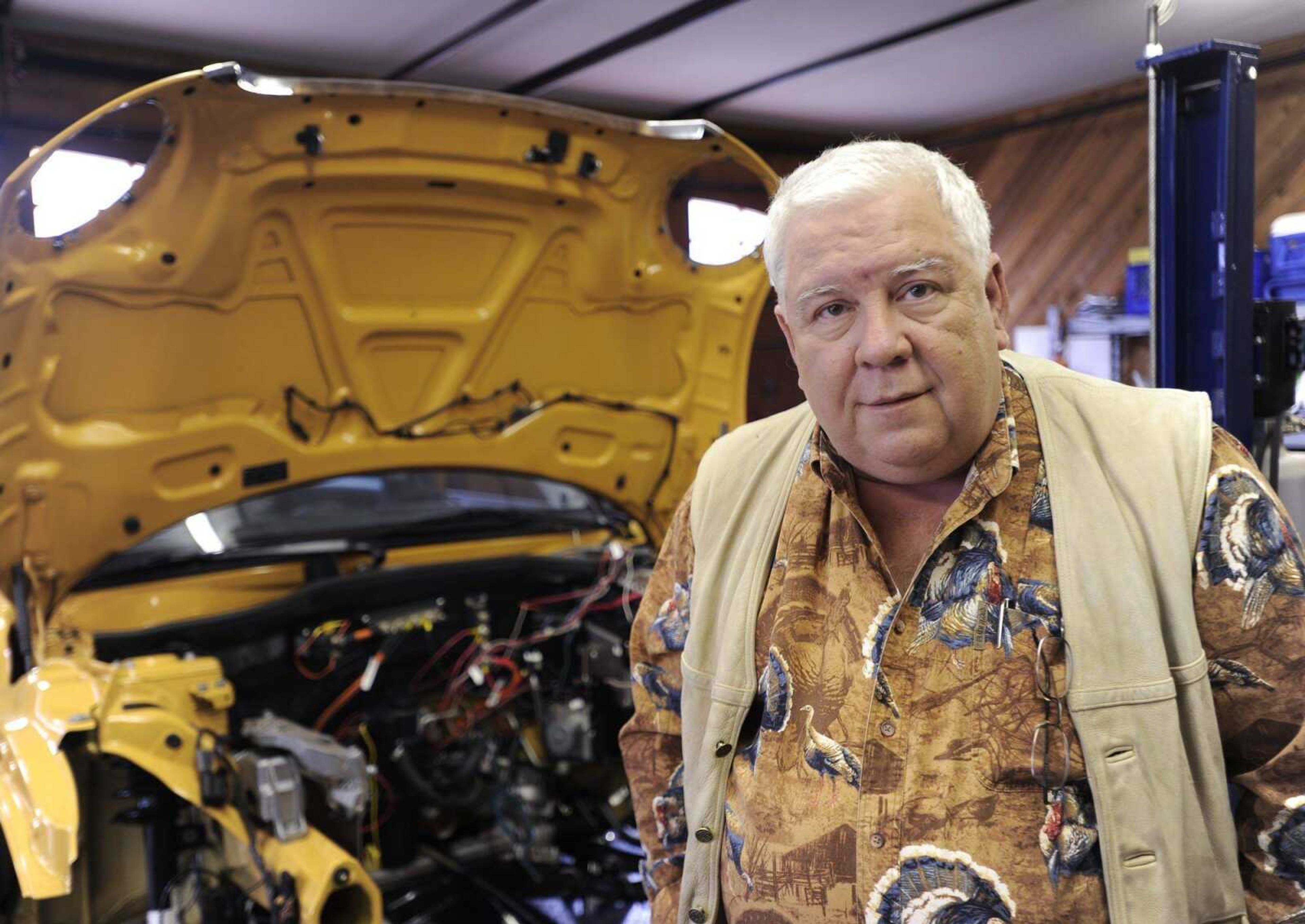Talking Shop with Jack Rickard, electric car conversion entrepreneur
Cape Girardeau entrepreneur Jack Rickard is working to educate the world about electric car conversions through his website, www.evtv.me, a YouTube video series and online blog. He says someday we'll all be driving electric cars. Q: How did you get interested in electric cars?...
Cape Girardeau entrepreneur Jack Rickard is working to educate the world about electric car conversions through his website, www.evtv.me, a YouTube video series and online blog. He says someday we'll all be driving electric cars.
Q: How did you get interested in electric cars?
A: I was first interested in electric cars in 1979 when I left the Navy. More recently, I came across some information about lithium ion iron phosphate cells and was quite intrigued. We did a 1957 Porsche 356 Speedster replica. The performance and range actually exceeded my calculations by a pretty serious amount. I rather expected it to drive like a big golf cart. It didn't. Absolutely smooth and continuous acceleration from zero to 95 miles per hour in total silence. At the time, there were maybe a dozen such cars using these batteries in the world. So it dawned on me that nobody knew. We began a video series on it last May, and currently have about 150,000 regular viewers.
Q: What's it like creating your own Internet television shows?
A: We do TV a little differently. We host the videos, which are both high definition and quite lengthy, often an hour or hour and a half, on Amazon's Cloud service. Since we are not "broadcast" the videos can be any length, and there is no broadcast time, though we have kind of developed a habit of putting up something each Friday. So our viewers don't need TiVo, they just download any of the videos they want, whenever they want.
Q: How do your blog and your online videos work together?
A: The series is a bit technical, and about techniques and components to do your own electric car conversion. I post schematic diagrams, battery performance graphs, close-up photographs, etc., of things that come up on the shows. Viewers can go to the blog and get a large high-resolution image of it there to examine at their leisure.
Q: Why choose high-end cars, like a Porsche, to convert to electric?
A: They are more a political statement and technology play at this point than anything that makes any economic sense. An electric conversion will cost typically $15,000 to $20,000 in parts over the cost of the car. The premium for the "electric" pretty much wipes out any savings in fuel, so the economics don't work very well on inexpensive cars.
Q: What are the advantages of driving electric cars?
A: Electric cars are typically about 80 percent efficient. That means I can drive about 100 miles on a charge, and the electricity costs about $1.60. It is totally silent.
The motor has one moving part. There is no exhaust system, no cooling system, no fuel system, no belts, no radiator, no antifreeze, no oil, no filters, nothing. It doesn't really get dirty. Since you charge at home, at night, you wake to a full tank each morning. The average American drives 39.4 miles per day, and over half of American drivers drive less than 26 miles per day. So it is enormously convenient. I just don't go to the gas station. I plug the car into the socket in the garage. The components should last about a half-million miles with no maintenance of any kind beyond tires.
Q: Will we all be driving electric cars in the future?
A: Well, yes. The question is when. A few [auto]makers will introduce truly desirable cars at premium prices that will catch on. Gradually, the awareness of the advantages will grow, and in 10 to 12 years, yes, everyone will probably have an electric car. That doesn't really mean the end of the gasoline car. If you want to drive across country or tow a boat to the lake, the Escalade will still feel better. But to go to Schnucks for some milk and bread, or to pick up the dry cleaning, the electric car is ideal, particularly here in Cape Girardeau.
Q: What did you do before you began converting cars?
A: I started with a six-year stint in the U.S. Navy. Then worked for DOD contractors as a design engineer and technical writer, including McDonnell Aircraft in St. Louis, Emerson Electric Electronics and Space Division in St. Louis, and Martin Marietta Denver Aerospace in Denver. In 1986 I started a small publication covering electronic bulletin boards titled Boardwatch. It grew to become the trade magazine for Internet Service Providers. I sold this in 1998.
Q: What do you do when you're not working on cars?
A: I also fly and have a couple of DC-3s and a helicopter or two out at the airport.
Connect with the Southeast Missourian Newsroom:
For corrections to this story or other insights for the editor, click here. To submit a letter to the editor, click here. To learn about the Southeast Missourian’s AI Policy, click here.










